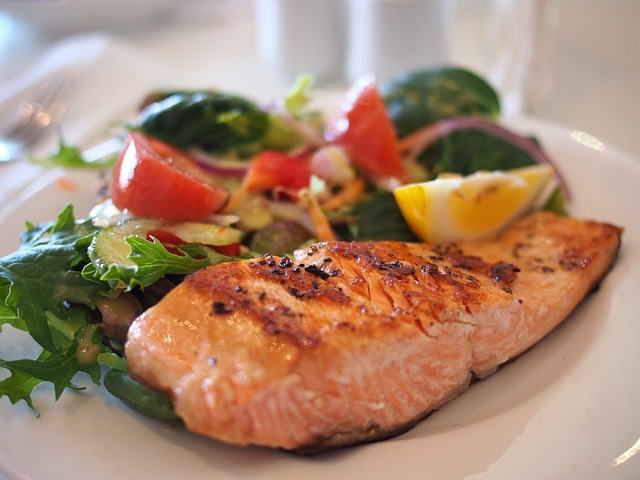By Dr. Jennifer Forney, Forney Wellness Group, LLC
Let’s have a heart-to-heart about something many of us have experienced but might not talk about openly: why we eat. Thanks to cultural influences and societal pressures, the reasons for eating sometimes lead to poor nutritional decisions. That’s why nutrition coaches like myself try to stress mindful eating with clients.
Sadly, sometimes we’re eating for reasons that have nothing to do with hunger — and everything to do with filling a void. You have stressed eaters and lonely eaters. You have bored eaters, eaters-on-the-go and everything in between.
In so many of these cases, eating habits and nutritional decisions aren’t rooted in nourishing our bodies. Of course, no one is here to shame or judge. We’ve all reached for a pint of ice cream after a tough day, or munched chips while mindlessly scrolling social media. We’ve all opted for the fast-food drive-thru to favor convenience.
But let’s unpack this a little. There’s a big difference between mindful eating for holistic health and eating to soothe emotions. Understanding that difference and building a better relationship with food is a game-changer.
What Does Mindful Eating Look Like?
Mindful eating is all about balance and intention. It’s not about being perfect or restrictive — it’s about nourishing your body, mind and spirit. Here are some hallmarks of holistic eating:
- Listening to Your Body: You’re in tune with your hunger and fullness cues. You eat when you’re hungry and stop when you’re satisfied (most of the time — we’re all human!).
- Choosing Nutrient-Dense Foods: You’re drawn to foods that fuel your body and make you feel your best — whole grains, fresh produce, lean proteins and healthy fats. But there’s also room for joy. A slice of cake or a handful of fries can absolutely fit into a holistic approach.
- Savoring the Experience: You’re present when you eat, savoring every bite. You’re not rushing through meals or eating on autopilot.
- Honoring Your Relationship with Food: You see food as more than fuel. It’s a way to connect with others, celebrate life and take care of yourself.
- Considering Your Whole Self: Holistic eating takes into account your physical needs, emotional well-being and even spiritual health. It’s about eating in a way that aligns with your values and goals.
Eating to Fill the Void: What’s Really Going On?
On the flip side, eating to fill a void is often a way of coping with emotions or unmet needs. It’s not inherently bad. But when uncontrolled, it’s just a sign that something deeper is going on emotionally and mentally.
Here are some common signs:
- Emotional Hunger: You’re not physically hungry, but you feel a strong urge to eat. This can be triggered by stress, sadness, boredom or even celebration.
- Mindless Eating: You’re eating without really tasting or enjoying your food. Maybe you’re distracted by TV, work or your phone.
- Craving Comfort Foods: You’re drawn to foods that are high in sugar, fat or salt because they give you a quick dopamine hit — a temporary feel-good boost.
- Feeling Unsatisfied: Even after eating, you might still feel empty, lonely or unfulfilled. That’s because the void you’re trying to fill isn’t about food.
- Guilt or Shame: After eating, you might feel regret or embarrassment. These feelings can perpetuate a cycle of emotional eating.
How to Shift Toward Holistic Health with Mindful Eating
First, let’s acknowledge that emotional eating isn’t something to beat yourself up over. It’s a coping mechanism, one of many ways we try to manage life’s challenges. The goal isn’t to eliminate it completely, but to create a more balanced relationship with food.
Here are some tips:
- Pause & Check In: Before reaching for food, ask yourself, “Am I physically hungry, or is something else going on?” If it’s emotional, explore what you’re feeling. Sometimes, just naming the emotion can be incredibly powerful.
- Find Non-Food Comforts: If you’re eating to soothe emotions, think about other ways to nurture yourself. A walk, a warm bath, journaling, or calling a friend can be great alternatives.
- Practice Mindful Eating: When you do eat, focus on the experience. Notice the flavors, textures and how the food makes you feel. This simple practice can make eating more satisfying and intentional.
- Build a Self-Care Toolkit: Holistic health isn’t just about what’s on your plate. It’s about how you take care of your whole self. Prioritize sleep, movement, connection and relaxation.
- Seek Support: If emotional eating feels overwhelming or persistent, consider talking to a therapist, nutrition coach and/or healthcare professional. They can help you uncover the root causes and develop healthier coping strategies.
The Bottom Line: Mindful Eating is About the Journey
Eating for holistic health is a journey, not a destination. It’s about giving yourself grace and making choices that support your overall well-being. If you find yourself eating to fill a void, don’t get down on yourself — use it as an opportunity to check in with yourself and your needs.
Food is one of life’s greatest pleasures, but it’s also a tool for self-care. When you approach eating with mindfulness and intention, you’re not just nourishing your body, mind and soul. And that, my friends, is the ultimate goal.
Until next time, be kind to yourself and your plate. Feel free to schedule a FREE consultation with me or reach out directly at [email protected].





One thought on “Mindful Eating: Eating for Holistic Health vs. Eating to Fill the Void”
Comments are closed.